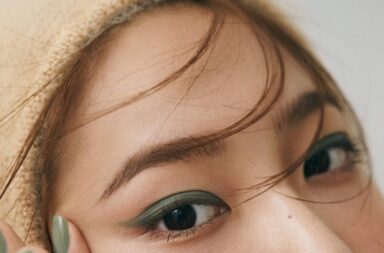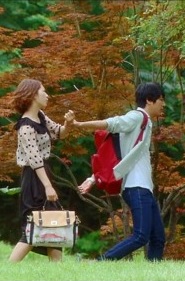 Note: the following contains description and discussion of sexual assault.
Note: the following contains description and discussion of sexual assault.
How many times have we seen women suffer under society’s sexist double standard, destroyed over something that men experience little backlash for? And how many times have we seen this happen in the Korean entertainment industry, where men effectively get away with crime, while women are heavily scrutinised over every little detail?
This is not just about what is in the news, either. How about the treatment of women and women characters on TV? How many times have we watched a K-drama where a guy kisses a sleeping woman, or follow her around despite being told she has no interest in him? Or how about the infamous wrist grab? Isn’t the mark of a “good romance” in K-dramas when the male lead grabs the female lead by her wrist and drags her off somewhere whether she be on the job, in the middle of a conversation, on the way home, or anywhere really. Meanwhile, it’s a move that women are taught to defend against in self-defense classes.
One of the most disturbing dismissals and instances of romanticizing an act of violence against women and the female body in a K-drama comes from My Son-In-Law’s Woman, also known as Marrying My Daughter Twice.
In this drama, we have the all too familiar scenario of a woman being pressured to marry a man her family finds suitable, but she herself has reservations about and no romantic feelings for. In Episode 5, Park Soo-kyung, the female lead, is “saved” by Choi Jae-young, the son of a family friend and her intended fiancé, from a public and rather violent confrontation with a disgruntled suitor she went on one date with who was mad that she never called back or… partook in physical activities; thus, she concedes and agrees to marry Jae-young.
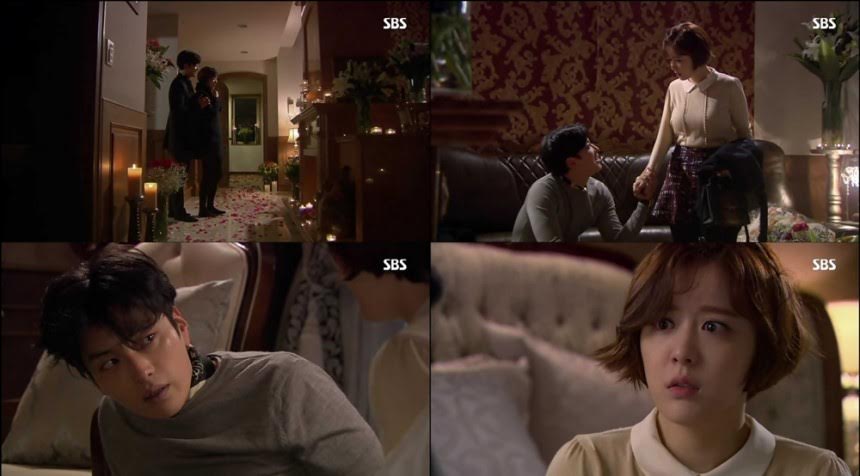
On the night of their engagement party, Jae-young pretends to take Soo-kyung home, but instead brings her to her family’s vacation home. There he proceeds to get drunk, and when Soo-kyung tries to go home he tells her “we’re are staying the night.” When she tells him she doesn’t want to because they aren’t married, his response is that “we’re as good as married,” and proceeds to force a kiss on her, then bring her to the bedroom. When she managed to push him off and rejects him. He gets mad and tries to force her to stay, but ultimately she escapes.
To make it clear: Soo-kyung is assaulted and nearly raped on her engagement night by her longtime friend and fiancé, in one of her family homes.
In the next episode, it suggests she’s been at home and in bed crying for more than a week, avoiding Jae-young. She doesn’t tell any of her family despite them asking why she is avoiding her new fiancé. Eventually Jae-young convinces her to talk to him in private. During their conversation Jae-young plays dumb or rather and more likely is completely ignorant that he has violated Soo-kyung. She decides to confront him telling him that she judged him wrong and that he is in fact obsessive and possessive of her rather than in love with her and because of that she doesn’t want to be with him or marry him. Here we have a great case of a victim taking back her power, but what she precedes this statement with erases the potential message of female strength and replaces it with a misogynistic, rape culture narrative:
You’re a man so I understand the urges. I get that my actions could’ve made you angry.
To have a woman justify and dismiss her own assault and attempted rape as a matter of “men’s needs,” is a literal example of art imitating life, and is a reflection of society’s unwillingness to give a voice to female victims in favour of defending the male attacker. Nonchalant dismissals of violence against women are what contribute to men thinking that they are justified in being mad and even violent because a woman rejected their sexual/ “romantic” advances, as well as strengthens the system that creates this attitude. As a result, women often internalize this images and narratives and are silent in the face of their own assault.
![[헤럴드경제=윤병찬기자]성폭행 혐의를 받고 있는 가수 겸 배우 박유천이 30일 오전 서울 강남경찰서에 출두하고 있다. 박유천은 첫 고소장이 접수된 지 약 20일 만에 처음으로 경찰에 출석하게 됐다. 이날 경찰찰은 박유천을 집중 조사, 성폭행 혐의와 관련한 입장을 들어볼 예정이다. 앞서 박유천은 지난 10일 여성 A씨를 성폭행한 혐의로 첫 번째 고소장을 받았으나 이후 A씨는 '강제성 없는 성관계'였다며 고소를 취하했다. 하지만 16일 또 다른 여성 B씨가 동일한 혐의로 박유천을 고소해 충격을 안겼다. 이어 17일 C씨와 D씨가 각각 2014년, 2015년에 박유천에게 성폭행을 당했다며 고소해 더욱 큰 파장을 일으켰다. 현재 강남경찰서는 총 12명 규모의 전담팀을 꾸려 수사를 진행 중이다. 이에 박유천은 결백을 주장하며 A씨에 대해 무고 및 공갈 혐의로 고소장을 접수한 상태다. 또한 박유천 소속사 씨제스엔터테인먼트는 보도자료를 통해 "2차 이후 고소에 대해서도 사실관계가 파악되는 대로 무고 등 강력하게 대응할 예정이며 당사는 박유천의 무협의 입증과 명예회복을 위해 경찰수사에 적극 협조할 예정"이라고 밝힌 바 있다. yoon4698@heraldcorp.com](http://seoulbeats.com/wp-content/uploads/2016/07/20160715_seoulbeats_jyj_yoochun_koreaherald-223x300.jpg)
Back in June of this year, JYJ’s Park Yoochun was accused of raping five women over the last two years. And like other cases of a male celebrity being accused of a crime, like abuse or serial raping, the public response was to blame the alleged victims.
Fans and netizens were quick to call the women ‘sluts,’ and accuse them of looking for a financial gain or “come up.” Of course, I do not know whether or not he did commit these five assaults, but when I was reading the comment sections as each woman came forward with their own accounts and saw many of his fans and other netizens choosing to blindly defend Yoochun, it illuminated the widespread internalizing of misogyny and rape culture.
The cases have now been closed and Yoochun faces no formal charges, but that is due to a lack of evidence of force, which is typically hard to prove in rape cases. To believe that women are so conniving and manipulative and driven by money and fame that five different women would all just decided to falsely accuse someone of rape just for money or just because they see other women coming forward, exposes society’s deep-seated hatred and mistrust of women. It is from this that we get the questioning of victims’ timing, and hesitation to come forward, which only works to silence other victims, and forve victims’ internalizing of their own attacks. That sounds a lot like Park Soo-kyung doesn’t it?
In addition to male celebrities being given the ultimate benefit of doubt, in K-pop, there is also a very blatant and unapologetic double standard. While men are given passes or even encouraged to do something, women can have their careers ended for the very same thing. And let a female celebrity do something the public disagrees with or dislikes, an all-out witch-hunt will commence!
In August 2010, rookie girl group Rainbow had their debut choreography for “A” banned by the government because they exposed their abs, which was deemed too racy. However, four months earlier in April, Rain was free to appear on broadcast despite the fact that he exposed his entire stomach while performing “Love Song.” In 2014, EXID had their signature ‘hip thrust’ choreography for “Up & Down” banned for being suggestive, meanwhile male groups in like Exo, NCT U, Teen Top, B.A.P and more have been free to do so and perform their choreography, intact, on broadcast. Stellar had their dance for “Marionette” banned for butt grabbing, while BTS and 2PM have been free to grab their butts (and crotches) for their live performances. Are we seeing a pattern?
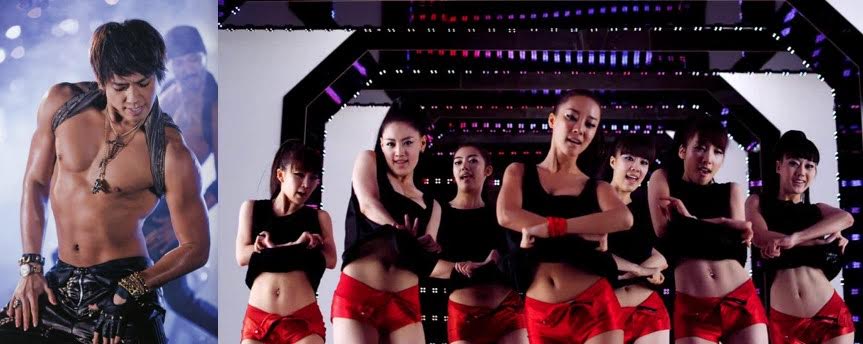
In each of these cases of the Korean government let their sexist, double standard flag fly, but netizens were right there to co-sign it by bashing the girl groups on social media, forcing them change their choreography, something they had spent months preparing, just like their male counterparts.
Most recently, Tiffany of SNSD has been added to a long list of women who have been targeted by the media for simple mistakes, after she posted a picture of a bag on Snapchat and used a geotag for Tokyo, which features the word designed with the Rising Sun.
Tiffany has since been dismissed from her position on KBS’ Sister Slam Dunk, and has been dropped as the spokesmodel for makeup brand IKPN after three years as the face of their brand (the timing is claimed to have been a coincidence). A MBN news anchor attacked Tiffany on air, even congratulating her for Japan’s win over Korea at the Olympics in doubles badminton, which transformed the controversy from one of making a mistake to one of Tiffany not having loyalty to Korea due to her being American-born.
To put the historical context of the Rising Sun flag simply, it is the equivalent to the Nazi Hakenkreuz and Confederate Flag. As I’ve discussed, while I understand that there is a lot of historical hurt associated with the Rising Sun, and some anger is justified, the greater issue, to me, is with Snapchat making the geotag. A witch-hunt is absolutely not necessary.
While many have condemned Tiffany online, singer and author Oh Ji-eun has actually defended Tiffany, saying she believes that had this been a man, it would not have led to such a huge media frenzy or a dismissal from her jobs:
전 티파니씨가 젊은 여성이기에 상황이 더욱 이렇게 흘러갔다고 생각합니다 얼마전 안중근으로 눈물의 사과를 한 여 아이돌 사건도 그렇고 이런 일이 너무 빈번하게 일어나지 않나요 유독 젊은 여성이 많았단 생각 안 들어요?
— 오지은, JIEUN OH (@heaventomorrow) August 18, 2016
To me, Tiffany is getting treated like this because she is a young woman. A female idol who had to apologize with tears, etc., don’t you think this sort of things happened to young women too frequently?
@Gayeon1224 1)같은 일을 남자 아이돌이 했을 경우 이렇게 빨리 하차까지는 가지 않을 것이라고 생각되기 때문입니다. 2) 티파니씨가 그 스티커로 자신의 군국주의적 성향을 드러낸 것이 아닌 단지 무지로 인한 해프닝이라고 생각하기 때문입니다
— 오지은, JIEUN OH (@heaventomorrow) August 18, 2016
1) If male idol did the same, I doubt he’ll get kicked out this fast.
2) Tiffany didn’t pay tribute to militarism. I think it was a simple incident, which was caused by ignorance.
There is a lot of evidence that the way Tiffany is being treated for this flag issue is based solely on her gender. In 2014, Got7 performed on Music Core and on the screen behind them there was a Rising Sun being played. While there was a public outcry, most of the anger was geared at KBS and the staff for not recognizing the issue and doing something before it was aired. There was never any cry for a boycott, a demand for Got7’s dismissal from TV programs. There wasn’t even a call for a boycott of KBS.
In 2012, Got7’s labelmate Nichkhun of 2PM, born in the U.S and of Thai decent participated in a Thailand CF where he said a phrase in Japanese with the image of the Rising Sun displayed behind him. While he was accused of being Anti-Korea/Pro-Japanese, netizens never boycotted him or called for his dismissal from his shows, the media didn’t attack him and mock him in the way they have Tiffany, and he was able to move on and continue with his career after releasing an apology. Something, again, Tiffany has not been allowed to do.
This sort of nonchalant misogyny and sexism doesn’t just take place on major platforms of media. On June 20th, comedian Park Myung-soo made some incredibly inflammatory, stereotypical sexist, rape culture narrative, remarks on his radio show about the cause of violent crimes against women, stating to his female police office guest:
I guess these crimes happen more often now that it’s summer. It’s alright if women wear nice clothes, but I think it’s dangerous for them to wear overly revealing clothing and go out drinking, or things like that.
There aren’t any reports that the police officer corrected this ignorant and frankly dangerous case of victim blaming, but his Instagram was the sight of varied reaction from those who recognize the issue and those who cried “over sensitivity.”
“Sexual assault doesn’t happen because of one’s outfit.”
“Park Myung-soo has a daughter, too, and he said it because he is worried about other girls out there. Don’t you think you all are being too sensitive?”
“I know Park Myung-soo said it out of worry, but I hope he knows that what he implies is that the victim is the one to blame and is the cause of sexual assaults. There is no correlation between one’s outfit and sexual assault.”
K-dramas and other areas of mainstream media are riddled with instances of “art imitating life.” They perpetuate the dangerous, and biased narratives of misogyny and rape culture, and it is the responsibility of the creators of these forms of media, the writers, producers, directors, actors and other television personalities, the women in particular, to change their contributions to K-Entertainment so that this art becomes the life we want to see.
Perhaps if Koreans (as well as the international fan base for K-Entertainment) started seeing images of strong women, respectful men, and men who get appropriately punished for their violent acts, rooted in misogyny, committed against the female body, we will begin to see a shift in the real life treatment of women. Perhaps if comments such as Park Myung-soo’s don’t continue to go unchecked, the narrative won’t be accepted as truth. Hallyu needs to show women who don’t let themselves get pushed around and abused, who live in a society that doesn’t allow or tolerate the abuse. Let the proper treatment of fictional women characters, and especially of actual women, become the first line defense for women in the real world.
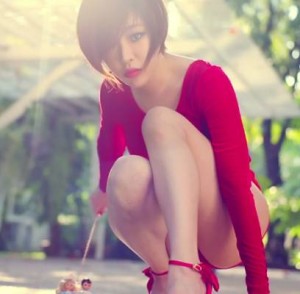 Being that misogyny is a long-standing, deeply rooted institution, it can at times feel like a long, complicated, slow battle to fight, which can be overwhelming. But, despite the fact that South Korea (as well as every country around the world) still has a long way to go to fix their gender inequality issues, we can still find hope for better days, and progressive media, to come with the rise in popularity of shows like Return of Superman that turn dominant ideas about gender roles on their ear or idols like Hyuna, Ga-in, and now Fei, who fight through criticism to celebrate female sexuality in their music and videos.
Being that misogyny is a long-standing, deeply rooted institution, it can at times feel like a long, complicated, slow battle to fight, which can be overwhelming. But, despite the fact that South Korea (as well as every country around the world) still has a long way to go to fix their gender inequality issues, we can still find hope for better days, and progressive media, to come with the rise in popularity of shows like Return of Superman that turn dominant ideas about gender roles on their ear or idols like Hyuna, Ga-in, and now Fei, who fight through criticism to celebrate female sexuality in their music and videos.
Readers, what instances of misogyny have you noticed in Hallyu products like K-pop and K-dramas?
This piece was written by La Shauna Campbell of Asia 24/7.
(Nate via NetizenBuzz, TV Daily, Twitter[1][2], Yahoo, YouTube. Images via: SM Ent., MBC, SBS, Korea Herald, J.Tune Camp, DSP Media)


